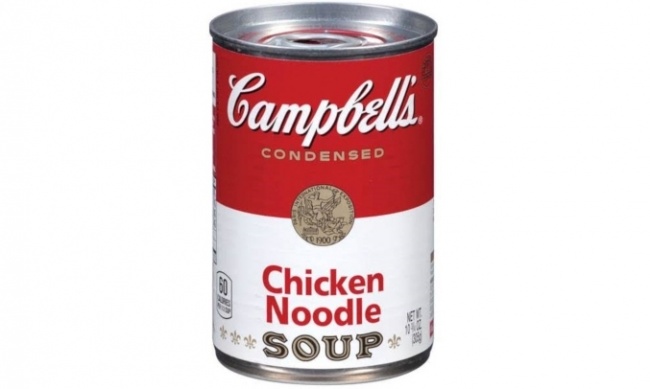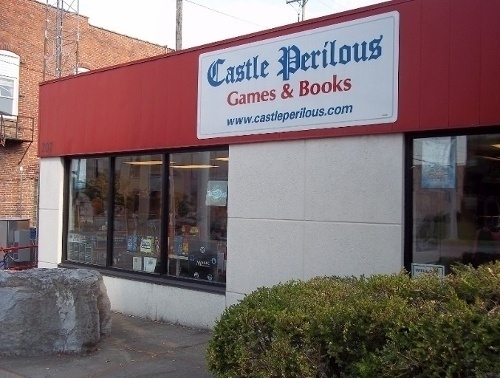Rolling for Initiative is a weekly column by Scott Thorne, PhD, owner of Castle Perilous Games & Books in Carbondale, Illinois and instructor in marketing at Southeast Missouri State University. This week, Scott Thorne talks about solutions to the out-of-stocks retailers saw this past holiday season, and shares an anecdote and product names.
Following up on last week’s column, I wanted to discuss a couple of solutions to the problems retailers have seen in out-of-stocks this past holiday season, especially among smaller publishers: flooring and reshoring.
However, before I get into that, I want to call your attention to an interesting column I ran across demonstrating the importance of names to a successful product, in this case Campbell’s Chicken Noodle Soup. Introduced in 1934 the soup, then called Noodle with Chicken Soup, sold comparatively poorly. However, in 1938, Campbell’s started sponsoring the Amos and Andy Show. During that era, and well up until the 1960s, actors in a show would often speak in character extolling the sponsor’s products (check out this Winston cigarette commercial (featuring Fred Flintstone and Barney Rubble shilling for the cigarette, which sponsored the show during its first season -- see below for the video clip). During a show in 1938, actor Freeman Gosden’s script called for him to speak highly of Campbell’s Noodle with Chicken soup. However, he flubbed the line, calling it "Chicken Noodle Soup." In the middle of the Great Depression, millions of customers thought the idea of a can of Chicken Noodle Soup sounded pretty good and started besieging grocers looking for the product. For a few weeks, Campbell’s tried explaining that the soup did not exist but eventually gave in to demand, printed new labels and renamed the product which sold like wildfire and still does today. Chicken Noodle remains Campbell’s best-selling soup, with over a half million cans sold per day last month.
Anyhow, back to reshoring and flooring. Reshoring is simply the concept of moving production that a company offshored due to cheaper production costs back home. The trade-off between producing products overseas and in the publisher’s home country is that of lower production costs versus the loss of sales due to the extended supply chain. Overseas production runs save costs in terms of lower materials costs, lower labor costs and greater flexibility, but add costs in terms of additional shipping costs, wait time and managerial and oversight costs. A survey of manufacturers in 2015 found that 17% had already reshored production to the US while another 37% had plans in the works to do so. A number of U.S. game publishers, including Kobold Press, Troll Lord Games, Looney Labs and Catan Studios, have never off-shored production, finding that the speed with which they can print and restock product outweighs the cost savings of offshoring.
Flooring is the concept of a publisher or manufacturer storing additional product on-site at the distributor but retaining ownership of the product. When the distributor gets low on product, it simply moves product from the publisher’s stock to the distributor’s, taking ownership and paying the publisher. This allows the publisher to make more product than it could easily warehouse and drastically reduces out-of-stocks. Steve Jackson Games had a successful flooring arrangement with Alliance for several years, and when Chessex Manufacturing was located in the same building with Alliance Fort Wayne, an out-of-stock on dice could be rectified with a walk next door.
Adopting either of these practices, or some others, would certainly help in reducing out-of-stocks, especially during the crucial 4th quarter.
The opinions expressed in this column are solely those of the writer, and do not necessarily reflect the views of the editorial staff of ICv2.com.

Column by Scott Thorne
Posted by Scott Thorne on February 4, 2019 @ 10:10 am CT
MORE GAMES
In 'Dracula vs. Hitler'; New RPG Just Unveiled by Devir Games
August 1, 2025
Devir Games unveiled Dracula vs. Hitler , a new RPG, that will be heading to BackerKit.
For 'Cosmere RPG'
August 1, 2025
Brotherwise Games previewed their Stormlight Premium Miniatures Collection, for Cosmere RPG.
MORE COLUMNS
Column by Scott Thorne
July 28, 2025
This week, columnist Scott Thorne comments on the Edge of Eternities prerelease and on Magic: The Gathering news from the Hasbro earnings report.
Column by Rob Salkowitz
July 21, 2025
Columnist Rob Salkowitz lays out the Comic-Con panels of interest to industry professionals, current and aspiring creatives, educators, librarians and retailers.








